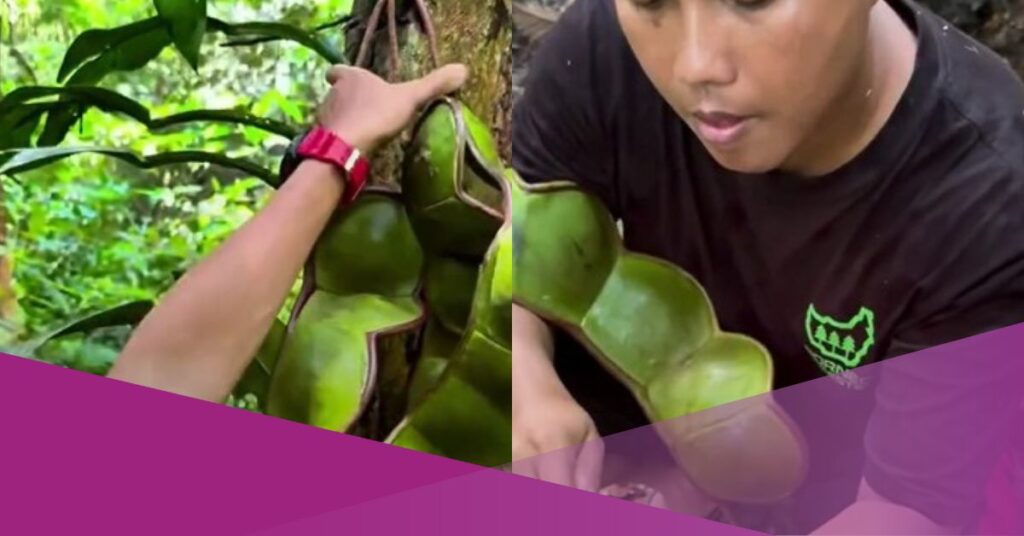A video showing a man discovering a giant petai-like fruit in an Indonesian forest has gone viral, sparking amazement and debate among netizens.
In the clip, the man is seen cutting open the enormous pod, removing its seeds, and tasting them.
The fruit, which reportedly stretches over one metre, caught the attention of social media users for its extraordinary size and appearance. Many were surprised by how easy it looked to peel.
The comment section quickly filled with reactions. One user joked, “That’s not petai, but PETAI.” Another wrote, “Wow… Indonesia’s natural wealth is extraordinary.”
Some netizens, however, were cautious, suggesting the fruit might not be edible due to its bitter taste.
The video reignited memories of a similar discovery several years earlier in Central Java, when residents found a petai-like fruit of unusual proportions.
Not a Petai After All
The discovery recalls a 2020 incident in Panawaren Village, Sigaluh District, Banjarnegara, Central Java, where locals found a massive tree in a protected forest.
Its fruit resembled petai but was much larger, about five times the normal size.
At the time, photos of the fruit went viral on social media, with many assuming they were digitally altered.
As reported by Detikcom, residents confirmed the fruit was real and measured roughly 120 centimetres in length. The pod had been picked on Sunday, 15 March 2020, and was still kept by villagers when reporters arrived.
“So, what went viral on social media is not a Photoshop. This is indeed a large petai-like fruit. It was picked from the Pringamba 2 protected forest,” said Agus Martin, a resident of Panawaren Village, to detikcom on Monday, 23 March 2020.
According to Mongabay, officials later clarified that the plant was not a true petai tree. The Head of the Banjarnegara Agriculture, Fisheries, and Food Security Agency (Dintankan), Totok Setya Winarna, explained that the species had long been known to locals.
“After it went viral, we immediately went to the field in Panawaren Village, Sigaluh. It turned out that the fruit was not petai. So, we asked the community not to consume it,” Totok said, as quoted from Mongabay.
“Actually, residents were already familiar with the tree. It’s not a new discovery, as the local people call it Gongseng or Gandu.”
Totok added that the plant, with the Latin name Entada rheedi, produces fruit that looks almost identical to petai.
“The Entada tree is a rare plant that grows in the forest. Its fruit is very similar to petai, but it doesn’t taste like petai. It’s bitter and astringent. Therefore, residents are not allowed to consume or cook it,” he emphasised.
The Entada rheedi vine is known to grow across tropical Asia and Africa, often found climbing tall trees in lowland forests. Although harmless to touch, its seeds contain compounds that make them inedible.
































